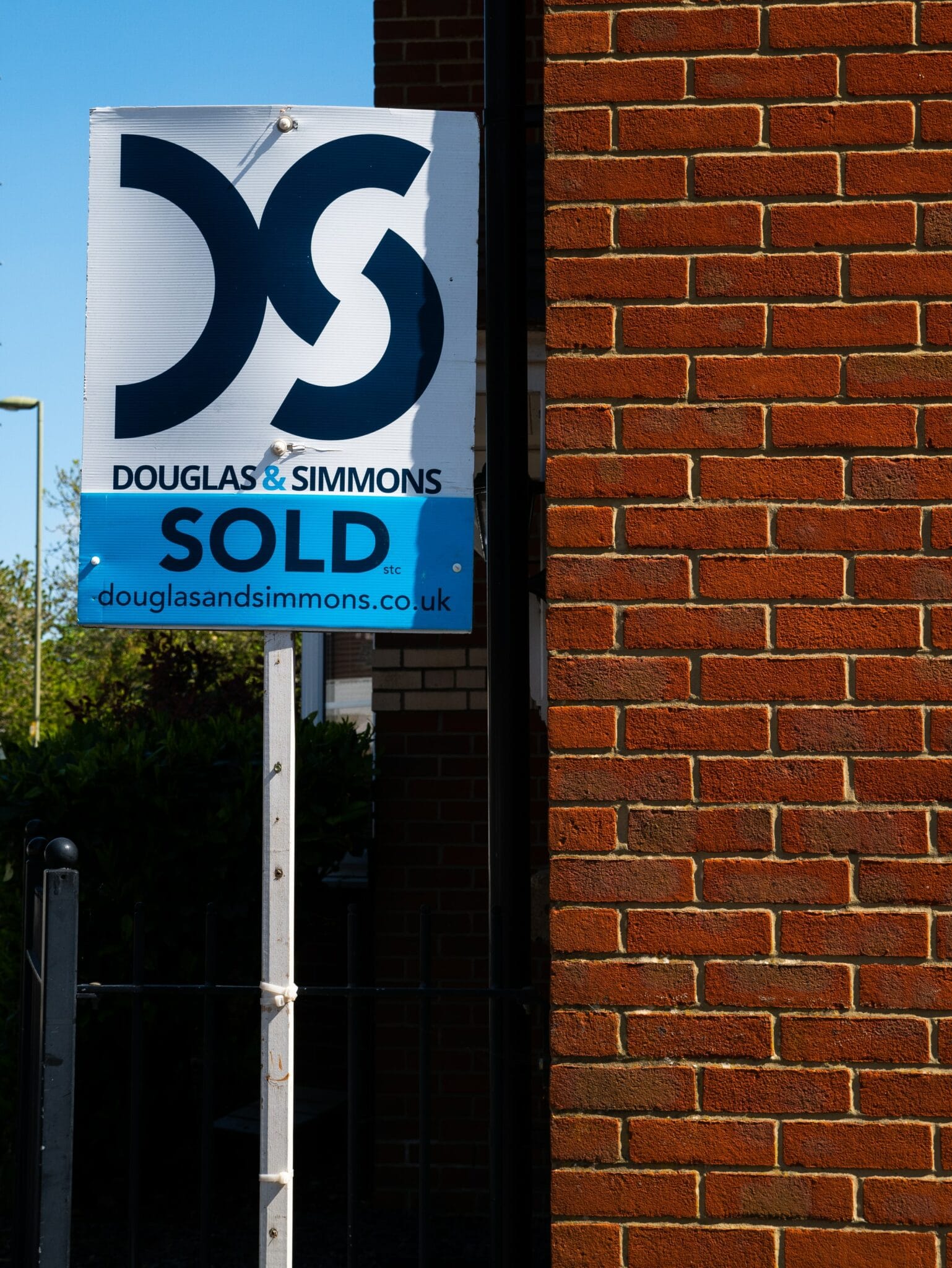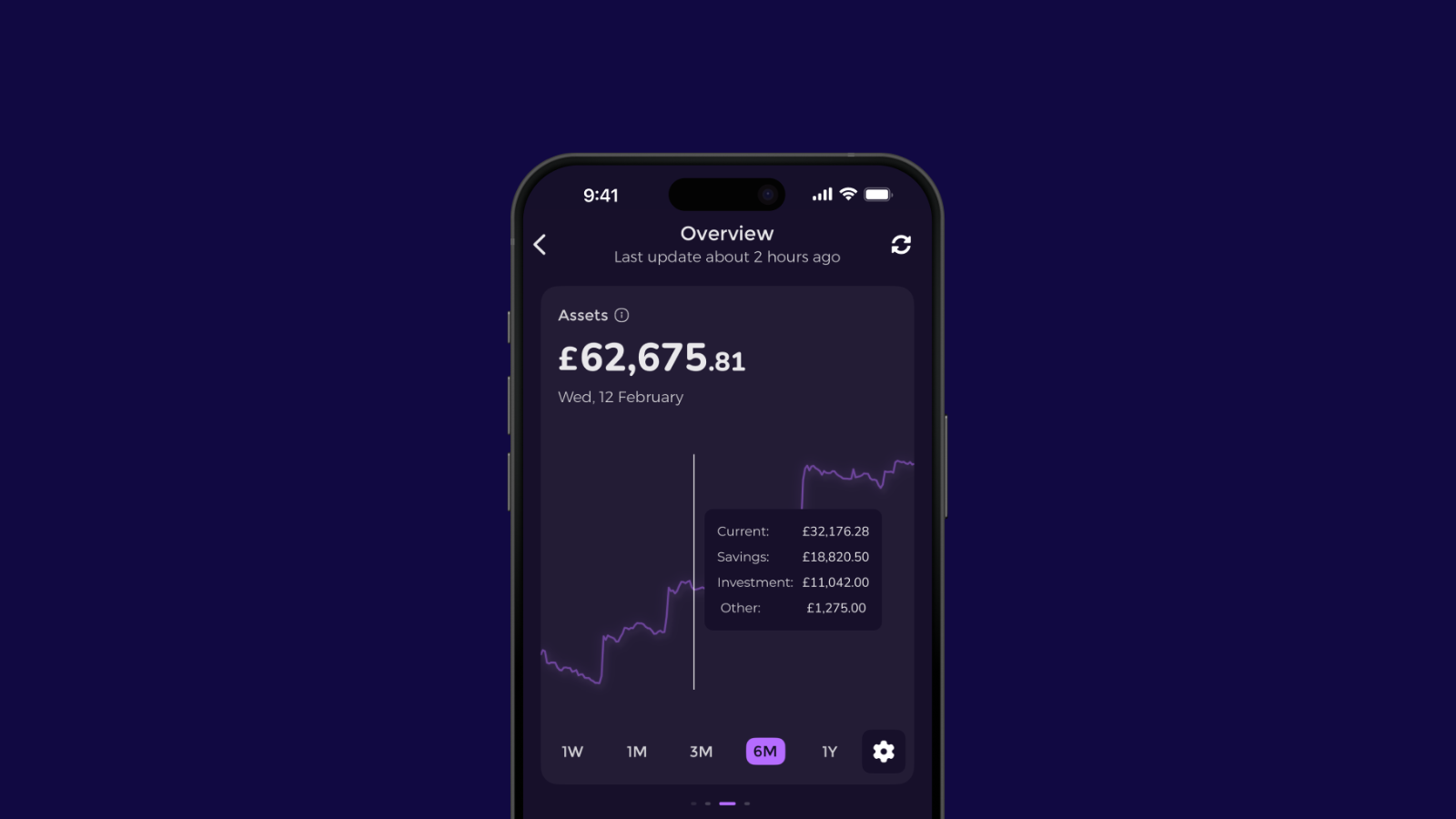FEATURED ARTICLE
11 Things You Need To Know Before Applying For A Mortgage

Rebekah May
February 11, 2021 •6 min read
TABLE OF CONTENTS
Summary:
A mortgage is a type of loan you take out before purchasing a property. Applying for a mortgage is one of the biggest financial decisions you’ll make and there are a lot of things you need to consider. Here are 11 of the most important things you need to know before applying for a mortgage.
1. Research what you can afford
One of the first things you need to know before you apply for a mortgage is what you can realistically afford.
Spend some time researching different areas you’d like to live in, and compare property prices on sites like Rightmove or Zoopla. These sites show properties for sale in a select area and can help you understand what type of home you can buy at what price range.
In most cases, you’ll then need to save enough money for a 10% deposit. Consider whether you can save enough money for a deposit and the extra fees that come with buying a property.
Then understand how much money lenders would be willing to let you borrow. As a general guide you can add up your annual income and times this by 4.5. For example, if there are two people buying the property and their joint income is £80K then they could borrow around £360k. (This is an estimation and your credit score also plays a role in how much you can borrow)
You can then use an online mortgage calculator to estimate how much the mortgage payments on a property would cost you. Just tell the tool how much you want to borrow, what mortgage term you want, and what interest rate you think you could get and it’ll calculate your monthly mortgage payments. For example, say you want to borrow £360K on a mortgage term of 35 years at 3.5% interest, you’ll have to pay roughly £1,500 per month in repayments.
Review all of these figures and make sure you have a good understanding of how much you can afford. It’s vital that you only take out a mortgage that you can afford because mortgages are secured against your property. This means that your house could be repossessed if you miss monthly payments.
2. Save as much money as you can
The more money you have, the less money you’ll need to borrow from mortgage lenders. Most mortgages at the moment need a minimum 10% deposit, but the bigger the deposit you can offer, the better.
If you have a 10% deposit your Loan to Value (LTV) is 90%. The lower your LTV percentage, the more likely you are to receive better mortgage deals. This is because the lower your mortgage is, the less risky you are to lenders and the less chance you have of the property falling below the amount you owe on the mortgage.
A good mortgage deal can give you lower interest rates and lower monthly repayments. Getting a good deal can therefore mean the difference between thousands of pounds over a mortgage term, so if you’re in no rush to buy then try saving as much money as you can first.
As mentioned above, buying a house also comes with many extra fees. Make sure you’re saving enough money to cover the deposit, valuation fees, survey fees, etc, and have some money leftover in an emergency fund that you can use to fall back on if you need.
3. Look into help from the government
There are lots of really great government schemes that can help you get onto the property ladder. Like the Lifetime Isa, Shared Ownership, and the Help To Buy Equity Loan scheme. These schemes offer certain incentives and rewards for putting your money into property, and should be explored by everyone - even if you’ve already saved up enough deposit.
We caught up with one of our favorite personal finance bloggers to look into each of these schemes in more detail. Find out more here.
4. Register to vote
Another thing that you need to know before applying for a mortgage is that mortgage companies check if you have registered to vote. Make sure you sign up to the electoral roll so lenders can confirm your identity and verify that you are who you say you are.
You can register for the electoral roll if you’re over 16, and are a British citizen, an Irish or EU citizen living in the UK, a Commonwealth citizen who has permission to stay in the UK, or a citizen of another country living in Scotland or Wales who has permission to stay. Registering takes a few minutes, and as well as helping you apply for a mortgage will also help improve your credit score.
5. Make sure all your bills are paid on time
Paying all your bills on time builds up a good credit history. This then positively impacts your credit report - something that lenders will look at before accepting any mortgage applications.
If you don’t pay your bills on time, missed payments will count against you on your credit file. They'll then stay on your file for six years. Missing any bills could therefore mean the difference between being accepted for a mortgage and not.
Make sure you never miss a bill by setting up direct debits or standing orders. You can also use an app like Emma to track all your monthly payments. Connect your accounts to the app and you’ll easily be able to check that your account has enough money to pay each of your necessary bills.
6. Reduce any debts
If you have any debts, try and clear them as much as possible before applying for a mortgage. This includes overdrafts, credit card debts, payday loans and so on.
Lenders will be more willing to lend you money for a mortgage if you don’t have any outstanding debts to pay as this demonstrates that you can manage your money responsibly. Lenders might also let you borrow more if you can show that you don’t have any outstanding debts.
7. Don’t apply for new credit
Another thing you should do before applying for a mortgage is stop applying for any new credit.
Try to avoid applying for new credit in the three to six months prior to applying for a mortgage. Applying for credit will show up on your credit report and could give the impression that you’re not managing your money very well.
8. Avoid switching jobs
The majority of lenders would prefer to see that you’ve been in the same job for a decent length of time - at least three to six months. This is mostly for the lender's own protection, as it stops them from giving out loans to anyone in a probationary period that might struggle to make repayments.
If you’re considering applying for a new job it could therefore be a good idea to hold off until your mortgage is in place.
9. Check your credit report
Before applying for a mortgage you should also make sure you’ve checked your credit report for any errors. These are held by credit reference agencies like Experian or Equifax.
Make sure your address is correct and that there are no mistakes. You should also check that you’re not incorrectly associated with another person. This includes previous partners or flatmates that you might have had a joint bank account with.
If your credit rating is lower than you were expecting, focus on improving your credit over the next few months. Here are a few tips on improving your credit score.
10. Decide if you're going to use a mortgage broker
The next thing you need to do before you apply for a mortgage is decide whether you’re going to use a mortgage broker, or apply directly to the banks yourself.
If you apply to the banks yourself, you have to bear in mind that the bank will only show you their own mortgage products.
If you think you’d need a little more help with choosing the best mortgage then getting in touch with a broker is a good idea. They’ll help explain the different types of mortgages across the whole market, and suggest which one is best for you. Getting a mortgage is a huge financial commitment, so a broker can help to make sure you get the best deal possible.
You’ll be asked to share information about your income and outgoings, and will most likely need to gather some important documents to prove this. Round up your last 3 months' bank statements. Some form of ID, like a passport or driving license. As well as your P60, and any recent utility bills.
Once you’ve decided whether you’re going to use a broker or go direct you can then work on getting a mortgage in principle. A mortgage in principle tells you how much money a mortgage company is likely to lend you.
Having a mortgage in principle is useful when you’re searching for houses. It shows estate agents and sellers that you’re serious about buying and proves that you can afford the properties they’re showing you.
A mortgage in principle normally involves either a “soft” or “hard” check on your credit report. Hard checks can impact your credit score, so make sure you ask which type of check is being done before getting a mortgage in principle.
Summary:
There’s a lot to think about when it comes to buying a house. Use this article as a checklist to make sure you’re clued up on everything you need to know and give yourself the best chance of getting any mortgage application accepted.
Got any questions about getting a mortgage? Visit the Emma Community and ask fellow Emma users for their top tips and advice on buying a house.
You may also like
Check out these related blog posts for more tips
© 2025 Emma Technologies Ltd. All Rights Reserved.
Emma is registered and incorporated in England and Wales.
Emma Technologies Ltd is an appointed representative of RiskSave Technologies Ltd, which is authorised and regulated by the Financial Conduct Authority (FRN 775330).
Payment services (Non MIFID or Deposit related products) for Emma Technologies Ltd are provided by The Currency Cloud Limited. Registered in England No. 06323311. Registered Office: Stewardship Building 1st Floor, 12 Steward Street London E1 6FQ. The Currency Cloud Limited is authorised by the Financial Conduct Authority under the Electronic Money Regulations 2011 for the issuing of electronic money (FRN: 900199). For more detail on how your money is protected please see here. You can also find Currency Cloud's Terms of Use here.
Emma Technologies is an Introducer Appointed Representative of Quint Group Limited and not a lender. Quint Group Limited is authorised and regulated by the Financial Conduct Authority (Firm Reference Number 669450). Monevo Limited is an Appointed Representative of TransUnion International UK Limited. TransUnion is authorised and regulated by the Financial Conduct Authority (Firm Reference Number 737740). Emma Technologies introduces customers first to Quint Group Limited, as a licensed credit broker, who then refers on to Monevo Limited.
Emma is registered with the Financial Conduct Authority under the Payment Services Regulations 2017 for the provision of payment services.
Financial Conduct Authority Reg Nr: 794952.
Company Registration Number: 10578464.
Data Protection Registration Number: ZA241546.
All testimonials, reviews, opinions or case studies presented on our website may not be indicative of all customers. Results may vary and customers agree to proceed at their own risk.
Resources: Cancel subscriptions, Cashback offers, Who charged me, Rent Reporting, Budgeting, Investment universe, Emma vs Moneyhub.
Featured cashback offers: Samsung, SimplyCook, NordVPN, Audible, M&S Homeware.









